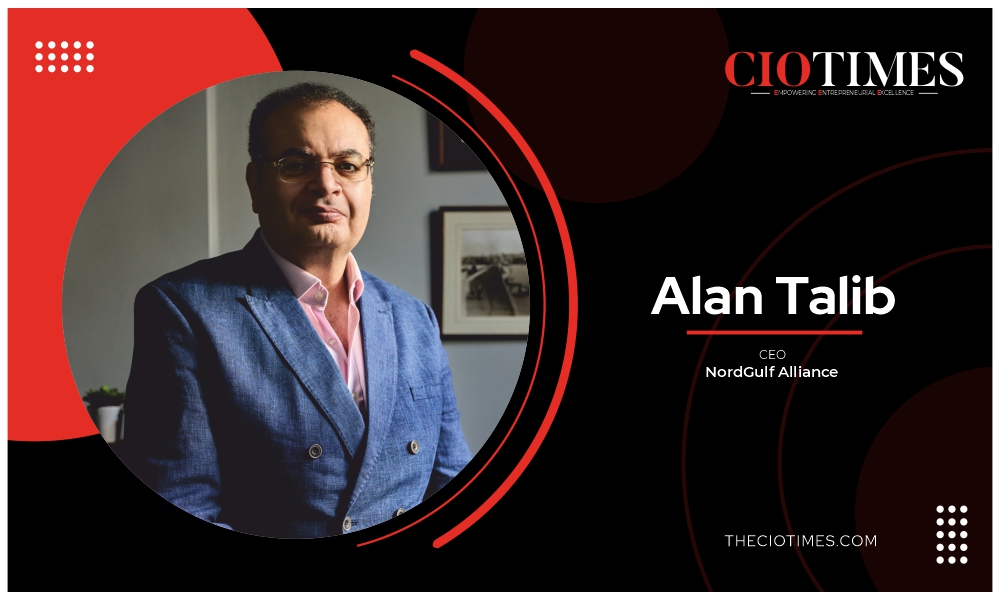Quality in construction projects is achieved through the application of various quality control principles, procedures, concepts, methods, tools & techniques, and their applications to various activities/components/subsystems at different phases of the life cycle of a construction project to improve construction process to conveniently manage the project and make them more qualitative, competitive and economical.
Quality tools & techniques are very important to develop a comprehensive project quality management system. The application of tools & techniques in construction projects has a great influence on the cost-effectiveness results of construction projects and achieving successful project performance. Quality management tools & techniques help in project planning, execution, monitoring, and control of projects and evolve a project management system that makes project deliverables.
However, there exists a gap in the literature related to quality in construction projects. This prompted Dr. Abdul Razzak Rumane, Advisor & Director, Construction Management, Sijjeel General Commerce & Contracting Co. Kuwait, to write books in the field of quality in construction and provide much-needed literature in a condensed form that every construction practitioner, academics, and regulatory authorities would love the read and get benefitted.
So far, Dr. Rumane has published 9 useful books accepted by construction professionals worldwide, thus achieving his mission by becoming an internationally acclaimed engineering consultant and author in the field of quality in construction projects.
Internationally Acclaimed Professional
Dr. Rumane’s professional career exceeds 50 years in varied engineering fields. In 1972, he graduated with a Bachelor of Engineering degree in electrical engineering from Marathwada University (now Baba Saheb Ambedkar Marathwada University) in India. He began his career as a trainee engineer and progressed to roles such as officer in the procurement department, purchase engineer, and staff engineer. These positions allowed him to work in various engineering fields, including vendor development, material management, procurement, and quality management. In 1981, he moved to the Middle East, where he focused on construction project assignments. Despite the shift from manufacturing to construction, his engineering background facilitated the transition. During this time, he also pursued further education, earning diplomas in Modern Management and International Trade in 1982 and 1983, respectively.
With his engineering background, he developed proficiency and expertise in all the related activities covering the major areas of construction projects like Design management, Construction management, Quality management, etc. He pursued further education and completed a postgraduate program at Kennedy Western University in the USA. In 2005, he earned his Doctor of Philosophy (PhD) with a dissertation topic focused on “Quality Engineering Applications in Construction Projects.” His interest extended beyond personal advancement; he aimed to share the knowledge gained during his research and work experience.
Recognizing a gap in the literature, he observed that while abundant information existed on quality concepts in manufacturing industries, there was limited guidance directly related to engineering and construction projects. Professional practitioners lacked concise information and guidelines for quality management in construction. To address this, he decided to write books on quality in construction projects, aiming to share practical insights with fellow practitioners, academics, and students.
So far, Dr. Ruamne has published 9 useful books in the field of quality in construction projects that are internationally recognized and accepted by professional practitioners, academics, and students in construction and construction-related fields. One of his books has been translated into Korean Language.
Making Quality his Forte
Dr. Rumane harbored an ambition to become an engineer and contribute to shaping the economy through innovative projects. Recognizing the respect and growth opportunities in the engineering profession, he pursued an engineering education.
Starting as a trainee engineer, he progressed to roles like an officer in the procurement department, purchase engineer, and staff engineer. These positions involved management activities related to quality, cost, and supply chain. He recognized that quality management applies across all management functions.
With dedication and additional certifications, he honed his skills across various engineering domains, eventually transitioning to a consultant engineer role. His ambition led him to pursue postgraduate studies, earning a Doctor of Philosophy (PhD) in general engineering. His research focused on “Quality Engineering Applications in Construction Projects.”
To write his dissertation, he delved into over 40 books, enriching his understanding of quality-related literature. Despite abundant manufacturing-focused quality literature, he identified a gap—a lack of concise, comprehensive information specifically addressing quality in construction projects. “During my professional career in varied engineering fields, I always thought of giving back to my profession with value-added information and work experience for a positive impact on the profession and quality of projects. My books help me do this,” says Dr Rumane.
Integrating Quality Management Principles into Projects
Quality management for construction projects differs from that in manufacturing or service industries. Unlike repetitive products, construction projects involve unique pieces of work with specific requirements. It encompasses not only the quality of materials and equipment but also a holistic management approach to complete the facility. The contractor plays a crucial role in ensuring construction quality.
In traditional construction projects, three main groups are involved:
- Owner
- Designer (Consultant)
- Contractor
Effective quality management requires participation from all three parties across different construction phases. Project complexity determines the division into phases, each further broken down into activities and elements. Engineers and consultants have distinct roles during design and construction.
Additionally, ISO has outlined quality management principles, forming the basis for ISO 9000 standards. These principles guide construction industry practices and continuous improvement.
Here are the quality management principles applicable to all participants in construction projects:
- Designer and Consultant Responsibility: The designer and consultant must explicitly define the owner’s requirements and establish clear standards for end products in contract documents.
- Clear Engineering Design: Engineering design should unambiguously outline process, equipment, and system requirements for ease of operation.
- Satisfying Owner’s Needs: The project and end products should meet the owner’s needs and intended usage.
- Shared Responsibility: The owner, designer, consultant, and contractor are jointly responsible for applying quality management systems, meeting customer requirements, and exceeding expectations within the defined scope of work.
- Total Quality Management: All team members should embrace participative management and individual accountability to uphold Total Quality Management principles.
Books Shaping the Industry
There exists a gap for a book to provide concise and complete information about quality in construction projects. There is not much literature about the procedures or overall information about the application of quality systems for the entire life cycle of construction projects.
The books by Dr. Rumane provide quality management-related information and guidelines to construction professionals and practitioners involved in construction projects and construction-related industries for implementing various activities during the entire life cycle of the construction project.
It addresses the importance of quality and various quality control principles, procedures, concepts, methods, and tools, as well as their applications. It explores various applications to several activities, components, and subsystems of different phases of the life cycle of a construction project with an emphasis on improving the construction process to manage the project conveniently and to make the project qualitative, competitive, and economical. The book also contains materials for that audience who have little or no knowledge information about all the quality-related basic topics.
These books have useful materials and information for students interested in acquiring knowledge about quality in the field of construction projects, quality engineering, construction management, and project management. The books also provide academics with essential information about the practices followed in construction projects.
The data discussed and derived in the book is from Dr. Rumane’s practical and professional experience in the construction field focusing on quality during the design and construction process to address quality management in the construction industry. The book also includes the reference writings of well-known quality philosophers whose works have dominated the quality movement. Their ideas and approaches to address specific quality issues have become part of accepted wisdom in the quality field. They are used globally by quality managers, construction professionals, project owners, government agencies, academics as well as instructors to provide engineering/management students with in-depth knowledge about current practices and familiarize them with the vernacular used in discussing quality assurance practices within the construction industry.
Aligning Quality Goals and Project Delivery Timelines
Project goals and objectives are prepared taking into consideration the final recommendations/ outcome of the feasibility study. Clear goals and objectives provide the project team with appropriate boundaries to make decisions about the project and ensure the project/facility will satisfy the owner’s/ end user’s requirements fulfilling the owner’s needs.
Construction Project quality is the fulfillment of the owner’s needs as per the defined scope of works, which is developed taking into consideration goals and objectives, within a specified schedule (project delivery timelines) and budget and to satisfy the owner’s/user’s requirements. There are mainly three key attributes in construction projects, which the construction/project manager has to manage effectively and efficiently to achieve a successful project. These are;
- Scope
- Time (Schedule)
- Cost (Budget).
These are known as “Quality Trilogy” or “Triple Constraints”.
“To achieve a successful project, these three key attributes have to be handled effectively and efficiently and track the progress of the work from the inception to completion of construction and handover of the project for successful completion,” suggests Dr Rumane.
Influence of Technology
The construction industry involves multiple stakeholders, each contributing to project quality. Dr Rumane agrees that technology has significantly transformed this sector, yielding several positive impacts. Technology enables efficient collection, analysis, and storage of quality-related data in an organized manner. It helps organizations align their requirements with project objectives, ensuring product and project quality. Technological tools enhance design precision, accuracy, and optimization. By streamlining processes, technology reduces design and overall project lifecycle completion times.
Tools facilitate planning, scheduling, and project oversight, minimizing cost and schedule overruns. Digital platforms foster collaboration, reducing errors during design, production, and construction. Digitization allows real-time monitoring and control of production or construction activities. Technology-driven innovations enhance production and construction techniques. Concepts like modular construction, prefab structures, and IoT in electro-mechanical systems enhance efficiency. Technology aids in locating resources promptly, preventing delays. Reduced inventory costs and improved material handling contribute to the overall project economy. Technology enhances safety protocols during production and construction. Efficient processes lead to higher profit margins.
“The construction industry continues to evolve, embracing advancements such as smart buildings, automation, and material technology improvements. These innovations not only enhance quality but also drive the industry toward sustainable growth and success,” concludes Dr Rumane.




